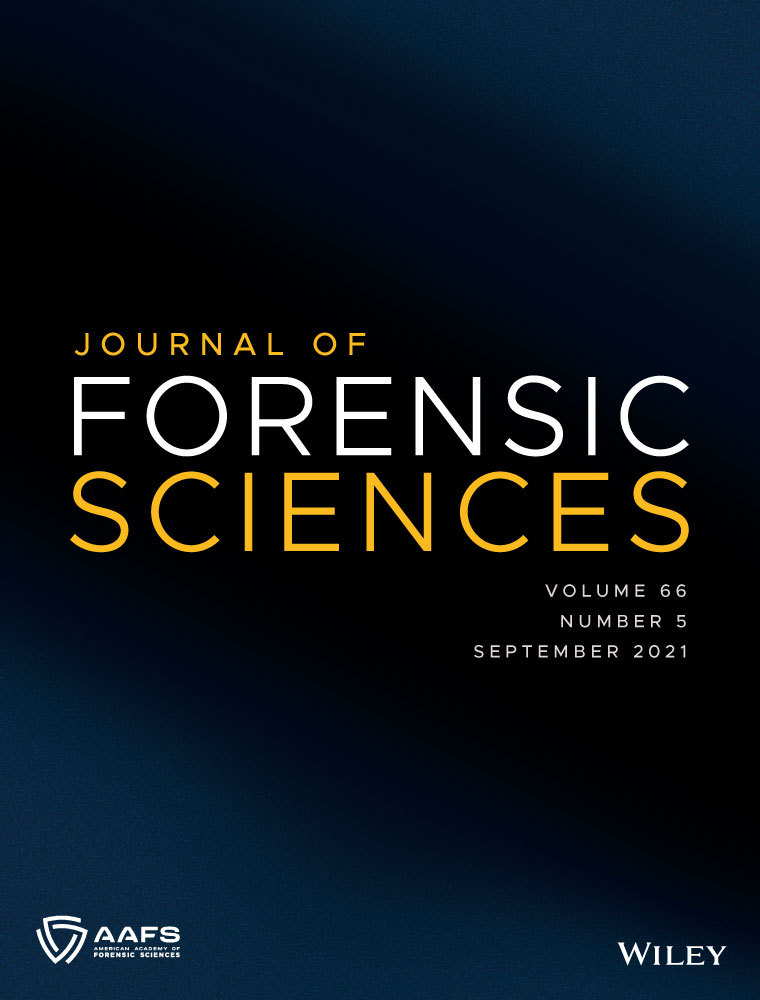Reflections on the aconitine poisoning
Authors Yang Ya MD and Zhang Zhixiang BSc contributed equally.
Funding information
This study was supported by the Shanghai Key Laboratory of Forensic Medicine (grant number KF1904).
Abstract
Aconitine is a natural toxic substance belonging to the family of aconitum alkaloids, which is used in small doses by Traditional Chinese practitioners. We present a case of accidental death due to acute aconitine poisoning. A 65-year-old Chinese man presented to a medical clinic with fever and shoulder pain. Soon after administration of intravenous ceftriaxone, a bottle of Chinese medicinal wine was administered. The man rapidly experienced headache, hearing loss and tinnitus, nausea, diarrhea, numbness of the lips, tongue, face, and the upper and lower extremities, cold sweat, fall of blood pressure, and discomfort of the entire body, and he died on the same day. Postmortem examination showed cyanosis of the nail beds, severe congestion in lungs and other organs, bilateral pleural effusions, and infiltration of basophils in the intestinal submucosa. No significant increase of IgE was found in the blood. Toxicological analysis detected aconitine in the medicinal wine, blood, and stomach contents by liquid chromatography–tandem mass spectrometry (LC-MS⁄MS). Aconitine was quantified in cardiac blood as 16.4 ng/ml, and in stomach contents (63.8 ng/ml) and wine sample (10.1 ug/ml). The cause of death was aconitine poisoning. This case report highlights the danger of aconitine. LC-MS⁄MS has the advantages of high analytic speed, sensitivity, and accuracy. It would be desirable for the government to control the use of aconitine-containing herbal extracts.




